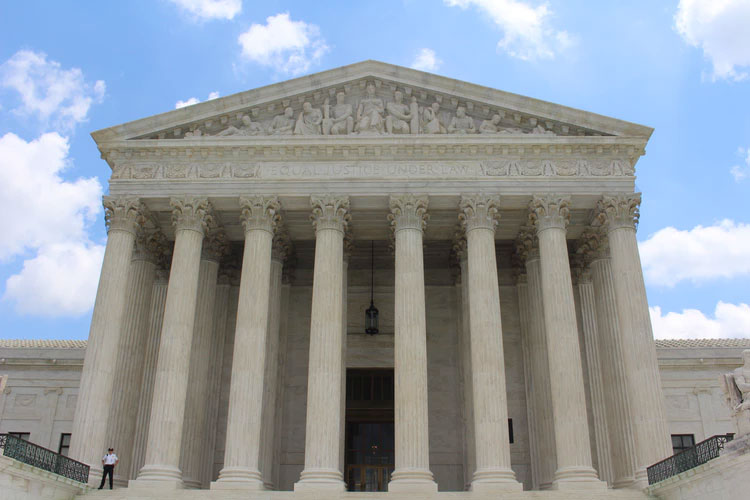How to Get a Felony Expunged in Washington State
Today in the Findley & Rogers Law Blog, we’re talking about how to get a felony expunged here in Washington State.
Having a felony conviction is something that affects tens of thousands of Washingtonians, many of whom don’t realize that there may be legal steps they can take to improve their situation, such as expunging an old felony conviction.
If you’re a felon, this might apply to you too. So let’s take a look at how to expunge a felony from your record.
How to Get a Felony Expunged: The Heavy Cost of Being a Convicted Felon
You don’t need a law blog to tell you that having a felony conviction on your record is an enormous economic burden. It costs you most job opportunities, including good-paying jobs. It makes it impossible to qualify for most rental housing, and it means you’ll be rejected for most loans and credit applications, or subjected to much more expensive repayment and financing terms.
Then there’s the social angle: If you don’t know how to get a felony expunged, your felony conviction can haunt you for the rest of your life. It can be hard or impossible to maintain a public profile. People don’t trust you, or they instantly write you off. Volunteer work, community involvement, and participation in groups and organizations: These things are hard to do when the people around you don’t trust you.
So most convicted felons either keep their past a secret and hope no one finds out, or they don’t bother engaging with their community in the first place.
Either way, it’s a tragedy. That’s because the vast majority of convicted felons are not the evil, hardened criminals we imagine from movies and TV. Most felons are ordinary people who made a mistake, usually a long time ago. Maybe it was a bad decision, or something to do with a drug addiction, or perhaps a momentary loss of control. Whatever the reason, most felons deserve the chance to learn how to expunge their felony, get closure, and move on with their lives. Luckily, that’s what the Washington state law thinks, too.
Thankfully, that’s what the Washington state law thinks, too.
How to Get a Felony Expunged: Understanding Your Rights
Washington state law specifically provides a mechanism for most convicted felons to have their felony conviction expunged. There are some eligibility requirements, but if you qualify then it’s just a matter of doing the paperwork and going through the legal process.
At Findley & Rogers, we’re here to help and assist you. We’ll give you a definitive answer as to whether you’re eligible for expungement, and we’ll explain what you have to do in order to become eligible if you’re not. We’ll show you how to expunge a felony, and, best of all, we’ll take care of the hard work for you, making sure all your paperwork is correctly filled out, and representing you when dealing with the court.
The legal system is not exactly user-friendly to the general public. So let our experienced legal team be your guide.
What Does It Mean to “Expunge” a Felony?
We can’t explain how to get a felony expunged without first explaining what “expungement” actually is.
Expungement is the removal of a specific conviction from your criminal record. The formal legal term is to “vacate” the conviction, but the word “expunge” is more common among the public. You’ll also sometimes hear it called, “clearing your record.”
Whichever phrase you prefer, it means that your public legal history will no longer contain your conviction — it will be as though the conviction never happened.
How to Get a Felony Expunged: What Are the Specific Advantages?
Before we explain how to expunge a felony, it’s important to understand why it’s worth the bother. We’ve already gone over the big-picture advantages: You can improve your economic situation and social standing. But there are some specific advantages that are extremely powerful, and you should know about them.
You Don’t Legally Have to Disclose an Expunged Felony
When you get your conviction expunged by the court, this means you can lawfully state that you were never convicted of the crime. This is a huge advantage on application forms and in job interviews.
If this felony was your only conviction, it also means you can lawfully state that you have a clean record and were never convicted of any crime.
Background Checks Won’t Show Your Conviction
When you’re applying for something like housing, a job, or credit, companies won’t just take your word for it. They’ll run a background check on you, too.
Here’s where another major benefit of expungement comes in: Because the court will stop reporting your expunged conviction, those background checking companies won’t find it in their search. Though a thorough search will still show that you had been arrested and charged, the case will not appear as a conviction.
This alone makes it worth it to learn how to get a felony expunged.
How to Expunge a Felony: Eligibility Requirements
There are generally three basic requirements when it comes to how to get a felony expunged.
- You have to comply with all of your court orders as a result of your conviction and sentencing.
- You have to complete a waiting period.
- You have to be in good legal standing when you apply for expungement.
Pay Back Your Debts to Society
When you were sentenced, the court probably ordered you to do several things. Some common ones include:
- Serve Probation
- Pay Legal Fines and Restitution
- Serve Community Service
Whatever the court ordered you to do, you have to do all of it. That’s how to get a felony expunged. It’s the legal system’s way of saying that you’ve paid back your debts to society and deserve to have your record cleared.
Reestablish Yourself as a Productive Member of Society
This next step makes sense too: You have to become a productive member of society again. The way the legal system deals with this is to impose a waiting period. In other words, you can’t expunge a recent felony. This shows that, in the years since your conviction, you’ve gotten your life back on track.
The exact waiting period depends on your circumstances, such as misdemeanor vs. felony conviction, and juvenile vs. adult conviction. Generally speaking, here are the waiting periods for how to get a felony expunged:
- Misdemeanors: 3 years (5 years for DV cases)
- Class C Felonies: 5 years
- Class B Felonies: 10 years
- Class A Felonies: Can NOT be expunged
- DUIs and some types of violent crimes: Can NOT be expunged
If you have any questions about your specific eligibility, or how to how to expunge your felony, just let us know when you contact us. If your conviction is excluded from ever being eligible for expungement, there is nothing we can do. Only a pardon from the governor or a change in state law would be able to help. But most convictions can eventually become eligible for expungement.
New Changes to the Waiting Period Rules
The mandatory waiting period for expungement begins either:
- After you are sentenced.
- After you are released from custody/confinement.
Whichever is later.
This is a recent change to the law. Previously, the waiting period was a big obstacle for people who wanted to know how to get a felony expunged. That’s because the clock on the waiting period only started ticking after you had completed your probation, paid your restitution, and done anything else the court had ordered you to do (such as community service). This often made it take much longer for poor and working-class people to get an expungement because when you don’t have money, it takes a lot longer to pay off fines.
Under the new law, completing your restitution and other penalties does not affect the waiting period. You still have to pay back your debts, including any fines and restitution, but you can do it at any time before filing for expungement.
Be in Good Legal Standing When You Petition for Expungement
The final requirement when it comes to how to get a felony expunged is that you have to be in good legal standing now. That means:
- No new criminal convictions in the waiting period.
- No criminal charges currently pending against you (in any state).
How to Get a Felony Expunged: The Legal Process
Once you’re ready to begin the process of expunging your felony, we’ll be able to take care of most of the work. We’ll build a game plan with you, and help you through the legal hurdles. At every step of the process, you’ll know what’s going on, why it’s happening, and what comes next. There will be no surprises, and you’ll be confident that you have the highest chance of success.
Explore Our Other Legal Services
Now that you’ve learned how to get a felony expunged from your record, you’re probably beginning to understand that the legal system isn’t so hard to deal with as long as you have the right guide.
At Findley & Rogers, we specialize in serving people like you who are honest, hardworking folks who made a mistake in their past and didn’t realize that they can get some legal closure on it and move on with their lives.
To that end, in addition to learning how to expunge a felony, we offer other legal services that you may be interested in:
- Sealing juvenile criminal records
- Sealing adult criminal records
- Ending a sex offender registration requirement
- Restoring firearm rights
- Appealing a NICS decision
- Getting a concealed pistol license
All of these services offer their own, distinct advantages, just like expungement does. The one-two punch of expungement plus sealing your record is particularly effective at getting your life back on track.
Let Findley & Rogers Help You Figure It Out
Contact Findley & Rogers today for a free consultation to discuss your situation. Let us answer your questions about how to expunge your felony, and help you find a path forward to getting closure on your past, restoring dignity, and moving on with your life.




